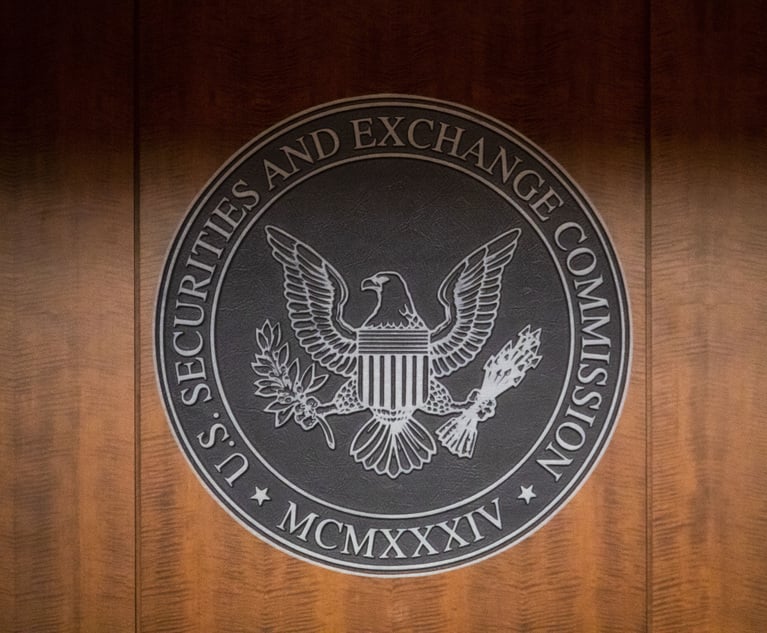Look out, Wall Street: She's baaaaaack.
|Elizabeth Warren, the Harvard professor and self-styled “cop onthe beat” who protects consumers from Wall Street, left Washingtonlast year after failing to gain enough Senate support to beconfirmed as director of the new consumer financial protectionagency she championed.
|Now, as if in a sequel, Warren will return to the U.S. capitalhaving been remade into a senator herself just as Congress preparesits first revisions to the landmark Dodd-Frank Act enacted in thewake of the 2008 financial crisis.
|As a senator, Warren gains both a bully pulpit and a vote, bothpowerful tools in the debate over whether and how to re-regulatebanks and bankers. And it comes with a secret weapon as well: theunofficial prerogative of a senator to single-handedly place“holds” on legislation or nominations.
|The question in Washington is whether Warren will come back asthe same partisan warrior she was when she left, or whether shewill adopt the milder manner needed for deal-making andlegislating.
|“The issue is whether her strong views will be tempered by theneed to get things done,” said Ernest Patrikis, a partner at White& Case LLP and a former Federal Reserve Bank of New Yorklawyer. “It is one thing to criticize; it is another to become aneffective legislator.”
|Warren vanquished incumbent Republican Scott Brown by a marginof 54 percent to 46 percent this week to become the first womansenator from the state of Massachusetts and heir to the seat heldfor 47 years by Democratic icon Edward Kennedy.
|Warren, 63, ran for Senate after President Barack Obama decidednot to nominate her as director of the Consumer FinancialProtection Bureau, a centerpiece of Dodd-Frank designed to helpprotect ordinary Americans from shoddy financial products. Warrenchampioned the idea as a lawyer and worked as an Obamaadministration adviser after the law's passage to build the agencyfrom scratch.
|The banking and financial services industry fiercely opposedestablishment of the bureau and Republicans in the Senate bandedtogether to block her nomination as director.
|Along the way, Warren became a favorite of the Democraticparty's liberal wing, and she won a prime-time speaking role at theparty's national convention. She used the opportunity to highlighther anti-Wall Street credentials and warn that the industry was farfrom abashed about the damage from the financial crisis.
|Still Strutting
|“Wall Street CEOs — the same ones who wrecked our economy anddestroyed millions of jobs — still strut around Congress, no shame,demanding favors, and acting like we should thank them,” Warrensaid at the convention. “Anyone here have a problem with that? WellI do.”
|In interviews after her victory, Warren sounded a more moderatetone, pledging to reach across ideological divides.
|“I come there for the same reasons I went before, and that is towork for people who need someone to speak out for them,” Warrensaid yesterday in an interview on MSNBC's “Morning Joe.” “I'll workwith anyone — and I really do mean that — Democrat, Republican,independent, Libertarian, contrarian, vegetarian.”
|Warren is expected to seek a seat on the Senate BankingCommittee, which would give her a direct role in writinglegislation affecting the financial services industry includingrevisions to Dodd-Frank.
|For instance, Republican lawmakers have called for changing theconsumer bureau into a five-member commission, which would dilutethe power of its director. They also want to subject the agency tothe appropriations process, which would give Congress more controlover its funding. Those changes had gained some support fromDemocrats in recent weeks.
|Richard Hunt, president of the Consumer Bankers Association,predicted that Warren's attachment to the consumer bureau couldalter that debate and make her the key player in any suchproposals.
|“I have no doubt in my mind that any changes on consumerfinancial regulation will have to go through Elizabeth Warren'soffice,” Hunt said.
|A decision on whether Warren will get on Senate Banking will notcome until at least January and is not a sure bet, according to asenior Democratic aide on the committee. Other senators with moreseniority are in line ahead of Warren and it is still unclear howmany openings there will be, the aide said, speaking on conditionof anonymity because the deliberations are private.
|Not 'Automatic'
|“I don't think it's automatic” that Warren will serve on theBanking committee, Senator Jack Reed, a Rhode Island Democrat, saidin an interview. He defended Warren, a professor of bankruptcy law,as “someone who has been immersed in serious study of the industryover a 30-year career.”
|“This is not just someone who is reflexive pro or con anything,”Reed said.
|Whether or not Warren is named to the Banking committee, shewill become the leading defender of Dodd-Frank in Congress, saidJames Ballentine, executive vice president of congressionalrelations at the American Bankers Association. RepresentativeBarney Frank of Massachusetts, co-author of the law that bears hisname, is retiring from the House. Former Senator Christopher Doddof Connecticut stepped down in 2010.
|“Obviously she was very involved in the formation of Dodd-Frankand the CFPB,” Ballentine said. “She certainly will want to have avoice in what happens.”
|Warren has shifted her tone toward Wall Street several times inrecent years. During the congressional debate over Dodd-Frank,Warren refused to compromise: “My first choice is a strong consumeragency,” Warren told The Huffington Post in an interview publishedMay 3, 2010. “My second choice is no agency at all and plenty ofblood and teeth on the floor.”
|However, after she joined the Obama administration, she becamemore conciliatory, meeting with big-bank executives, and working tocharm smaller community banks. Days before she left the job, shepivoted again, writing about “enemies” in Washington that wanted toweaken the agency.
|In her victory speech this week, she suggested that shecontinues to see consumers and Wall Street as adversaries.
|“You took on the powerful Wall Street banks and specialinterests and let them know you want a senator who will be outthere fighting for the middle class all of the time,” she told hersupporters.
|Community Banks
|Camden Fine, president and CEO of the Independent CommunityBankers of America, said Warren has cultivated ties to communitybankers in part because she sees smaller banks that focus ondeposit-taking and commercial lending as allies against Wall Streetbehemoths. He suggested that she might mellow some of her positionsonce she begins working in the chummy, clubhouse atmosphere of theSenate.
|“The fact that she was willing to work with us on certain issueswould certainly bode well,” Fine said. “But I have no idea how thedynamics of the Senate will change her views in her second life inWashington.”
|Jaret Seiberg, a senior policy analyst with Washington ResearchGroup, a unit of Guggenheim Securities, said he does not expect herto block all changes to Dodd-Frank, including a series of technicalfixes expected to be introduced next year.
|“Elizabeth Warren is going to be a staunch defender ofDodd-Frank but that doesn't mean that she's going to blockreasonable reforms,” Seiberg said.
|Others think she will continue her campaign to protect littleguys from the big banks.
|“She is going to be a populist,” said Stephen Myrow, a formerTreasury Department official who is now managing director of ACGAnalytics, an investment research firm. “She is not going to beabout getting legislation through. She is going to be aboutembracing the power of the microphone.”
|At least one analyst thinks she can do both — be a vocaladvocate for consumers and a team player in the Senate.
|“The open question to me is does she fall in line with theDemocrats,” said Mark Calabria, a former top Republican aide on theSenate Banking Committee who's now a director of financialregulation studies the Cato Institute. “It's hard to be a critic ofthe establishment when you are the establishment.”
|Bloomberg News
|Copyright 2018 Bloomberg. All rightsreserved. This material may not be published, broadcast, rewritten,or redistributed.
Complete your profile to continue reading and get FREE access to Treasury & Risk, part of your ALM digital membership.
Your access to unlimited Treasury & Risk content isn’t changing.
Once you are an ALM digital member, you’ll receive:
- Critical Treasury & Risk information including in-depth analysis of treasury and finance best practices, case studies with corporate innovators, informative newsletters, educational webcasts and videos, and resources from industry leaders.
- Exclusive discounts on ALM and Treasury & Risk events.
- Access to other award-winning ALM websites including PropertyCasualty360.com and Law.com.
*May exclude premium content
Already have an account? Sign In
© 2024 ALM Global, LLC, All Rights Reserved. Request academic re-use from www.copyright.com. All other uses, submit a request to [email protected]. For more information visit Asset & Logo Licensing.







